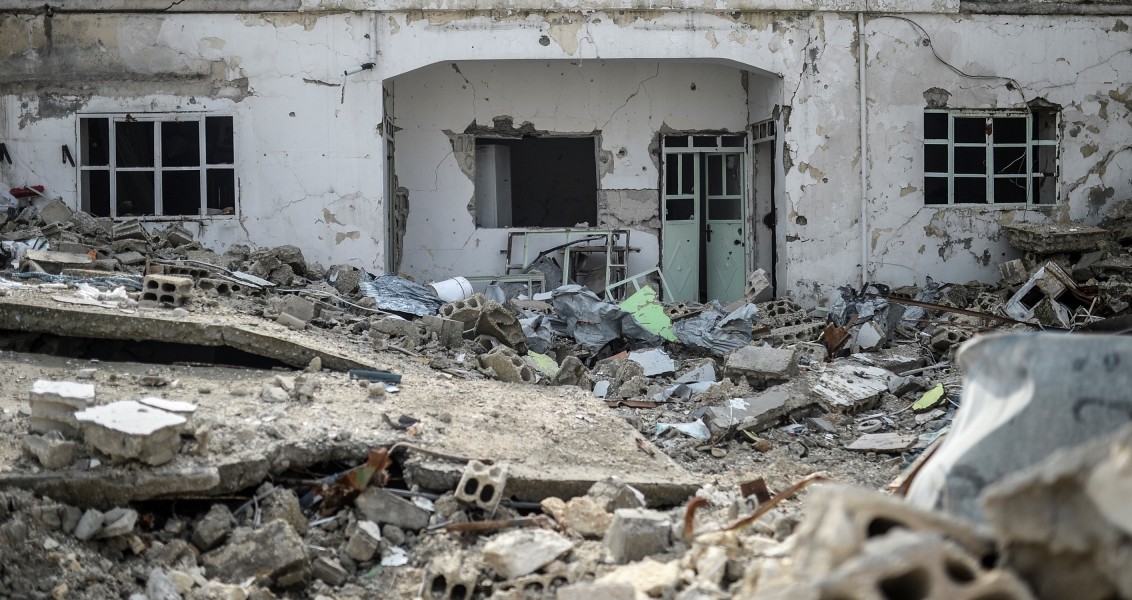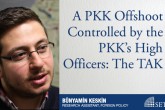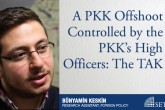If I were asked what a terrorist organization needs most other than weapons and militants, I would say psychological support and moral motivation.
A terrorist organization worries about enlarging its scope of legitimacy, creating a positive image of itself and searching for the formation of certain origin myths, at the heart of which lie the ideas of establishing psychological support and moral motivation.
The most concrete support that can be given to a terrorist organization without becoming an organizational part of it is presenting it with psychological support and strengthening its moral motivations.
Recently, whenever terrorism is spoken of the world over, undoubtedly the first organization that comes to mind is DAESH. When we consider the analyses done in the context of the struggle against DAESH we see that the factors of psychological support and moral motivation behind the organization are central problems. However, DAESH is not an organization that can receive psychological support and moral motivation from the outside. We can say that for DAESH, these factors are achieved from within through radical and dogmatic religious discourse, a geographical imagination based on conquest and harsh political ontology designating friend and foe.
The struggle against DAESH is not just the most common discourse in international politics today concerning terrorism; it is also the most valid tool of transnational intervention. We know that all of the international organizations on the world stage are trying to develop a strategy for the struggle against DAESH and that countries are coming together to form various military coalitions.
In a highly contradictory manner, the struggle against DAESH acting as a terrorist organization has transformed into one of the main points of psychological support and moral motivation of the PKK, another terrorist organization in Syria and Turkey. The PKK, just like DAESH, is a terrorist organization that causes the deaths of civilians while attempting to shape socio-political areas in line with its interests by creating an environment of fear. Unfortunately, the period of struggle against DAESH has enlarged the PKK’s area and afforded it psychological support and moral motivation alongside logistic means.
In the meantime, the PKK and its Syrian affiliate Democratic Union Party (PYD) have grown and, while on the one hand it has been damaging Turkey’s political life, economic structure and social peace with its devastating terror activities, it has also caused the elimination of other actors in northern Syria with the exception of the PYD.
Comparatively much weaker than DAESH in terms of engendering moral motivation and psychological support internally, the PKK procures this need from outside of the organization.
The PKK has been able to obtain the outside support it required in this context with DAESH’s occupation of Mosul. While the PYD’s People’s Protection Units (YPG) militia fought against DAESH in northern Syria, it was described as a secular, libertarian resistance organization fighting against a radical, religious terrorist organization. This resulted in the PYD gaining a sovereign area wherein it is hegemonic.
With the purpose of forcing Turkey to acknowledge the status the PYD has gained in northern Syria, the PKK has engaged in never-before-seen urban occupations and civilian massacres. This situation has undoubtedly negatively affected Turkey’s social, political, economic and cultural life. The authorities in Turkey have moved to a different strategy in its struggle against the PKK parallel to this new situation.
Suffering heavy losses due to state operations, the PKK has called out to Kurdish members of society whose support it assumes it has and asked them to rise up against the government. However, despite the calls for insurrection made by the PKK for the past year, the Kurdish people have not taken part in any such rebellion. Kurds remaining insensitive to the PKK’s calls has brought with it the result that the PKK’s need for psychological support and moral motivation has not been fulfilled.
The rhetoric in the struggle against DAESH has not been enough to create as large an area in Turkey for the PKK as it did in Syria. This rhetoric does not sufficiently provide the moral motivation and psychological support the PKK needs in Turkey.
At this point, ever since the June 7, 2015 elections, the PKK has been trying to extract psychological support and moral motivation by drawing actors who define themselves as enemies of President Recep Tayyip Erdoğan to itself in Turkey’s universities and media.
The “We Will Not Be Part Of This Crime” petition signed by academics, which has been debated furiously in Turkey, the analyses that have attempted to examine the PKK’s massacres from a war of rights perspective and hiding the perpetrator of any PKK terrorist action done and reporting on it as if it were any traffic accident come forward as the concrete products of this effort.
The Turkish state has been fighting the PKK, which has caused heavy losses for Turkey and is a major threat to public order and safety while keeping in mind the factors of psychological support and moral motivation. As in all modern nation-states, it is aware that it is necessary to fight terrorism and those who support terrorism together.
[Daily Sabah, March 18, 2016]
In this article
- Domestic Policy
- Opinion
- 2015
- 2016
- DAESH
- Daily Sabah
- Democratic Union Party (PYD)
- Domestic Politics
- Elections
- Global Actors | Local Actors
- Kurdistan Workers' Party Terrorist Organization (PKK)
- Middle East
- People's Protection Units (YPG)
- PKK - YPG - SDF - PYD - YPJ - SDG - HBDH - HPG - KCK - PJAK - TAK - YBŞ
- Recep Tayyip Erdoğan
- Syria
- Syrian Civil War
- Syrian Conflict
- Syrian Crisis
- Terror
- Terrorism
- The President of the Republic of Türkiye
- Turkish President
- US Military



